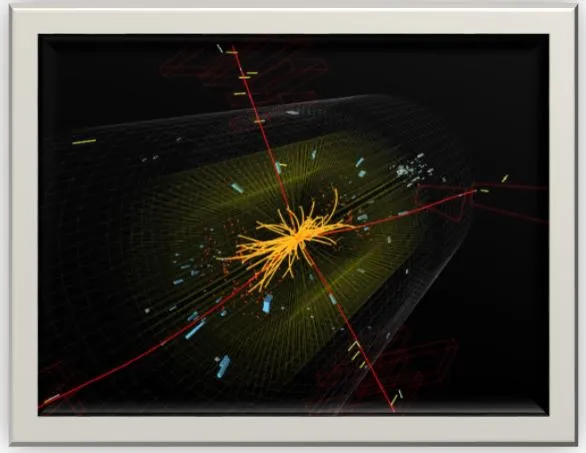

6th August 2024 (8 Topics)
Context
In a recent finding it was found that the Higgs boson is responsible for the mass and interactions of all the particles making elementary particles interacting with a field and dubbed the Higgs field.
About Higgs Boson:
- The Higgs boson is the fundamental force-carrying particle ofthe Higgs field, which is responsible for granting fundamental particles their mass.
- This field was first proposed in the mid-sixties by Peter Higgs, for whom the particle is named.
- The particle was finally discovered onJuly 4, 2012, by researchers at the Large Hadron Collider (LHC), the most powerful particle accelerator in the world, located at the European particle physics laboratory CERN, Switzerland.
- The LHC confirmed the existence of the Higgs field and the mechanism that gives rise to mass and thus completed the standard model of particle physics.
- It is one of the 17 elementary particles that make upthe Standard Model of particle physics, which is scientists' best theory about the behaviors of the universe's most basic building blocks.
- Higgs boson plays such a fundamental role in subatomic physics that it is sometimes referred to as the "God particle."
- Features:
- The Higgs boson has a mass of 125 billion electron volts, meaning it is 130 times more massive than a proton.
- It is also chargeless with zero spin, a quantum mechanical equivalent to angular momentum.
- It is the only elementary particle with no spin.

- What is a Boson?
- A boson is a "force carrier" particlethat comes into play when particles interact with each other, with a boson exchanged during this interaction. For example, when two electrons interact, they exchange a photon, the force-carrying particle of electromagnetic fields.
- Because quantum field theory describes the microscopic world and the quantum fields that fill the universe with wave mechanics, a boson can also be described as a wave in a field.
- So, a photonis a particle and a wave that arises from an excited electromagnetic field, and the Higgs boson is the particle or "quantized manifestation" that arises from the Higgs field when excited.
- This mass-granting phenomenon also only applies to fundamental particles like electrons and quarks. Particles like protons, made up of quarks, get most of their mass from the binding energy that holds their constituents together.
More Articles



